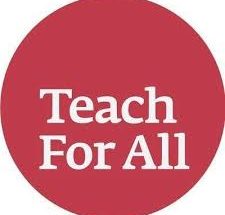
| Main purpose of job:
Nigeria is one of the most important countries for the UK in Africa and home to one of FCDO’s biggest development portfolios. Nigeria’s economy has enormous potential to create wealth, raise living standards, improve development indicators and lift millions of people out of poverty. But the country is also grappling with serious challenges such as high inflation, conflict, demography and climate change. Meeting the UK’s priorities in Nigeria requires top class economic advice on issues including economic stability and growth, investment and trade, infrastructure and service delivery, climate change and security. In particular, the UK seeks to support Nigeria to restore macroeconomic stability and lay the basis for sustained and inclusive growth. FCDO Nigeria requires an experienced economist to join its Economic Development team supporting the UK’s work in Nigeria. Country-based economists are essential for FCDO’s work due to their economic technical expertise, their knowledge of Nigeria’s economy and its institutions, and their ability to develop strong networks amongst government, businesses, economic analysts and others. As well as working with FCDO economists in Nigeria and across FCDO’s global network, you will work closely with people bringing other expertise and experience, such as climate and natural resource experts, political and governance specialists, education advisers, humanitarian experts, programme managers, procurement teams and so forth.
|
- Fluency in written and spoken English.
- Excellent economic skills and a track record of delivering high-quality, impactful and timely economic analysis that shapes and influences policy.
- Strong analytical skills, feeling confident in using data, drawing policy-relevant conclusions, and in supporting others to do so.
- Strong communication skills, with the ability to clearly explain economic concepts to non-specialist audiences and identify the implications for policy.
- 2:1 undergraduate degree with at least 50% of economics in the final two years, or a post graduate diploma, or a Master’s degree in economics
- A minimum of three years’ experience working in economic roles
The recruitment process will assess candidates against the UK Government Economic Service Technical Competency Framework. The five competences are summarised below. For more information on each competency please refer to the GES Technical Competency Framework website
Macro Economics: Being able to understand and explain the economy as a whole including: growth measurement, trends, drivers, and diagnostics; inflation and exchange rates; fiscal and monetary policy; financial sector and debt sustainability; exchange rates and government regulation (e.g. labour, climate).
Micro Economics: Being able to understand and explain the behaviour of firms or households including: the importance of choices and incentives; demand and supply analysis; competition; market or sector analysis; behavioural economics; the rationale for government intervention and core project appraisal skills (see The Green Book)
International economics: Being able to understand and explain the interaction with the global economy including: balance of payments; international and regional trade; international aid, remittances, financial flows and debt; migration; international and regional financial institutions and regulation.
Effective Communication of Economics: Being able to effectively communicate the relevance and impact of economic ideas, orally and visually, to colleagues and stakeholders of different backgrounds. Build effective working relationships with policy colleagues and other specialists to build mutual understanding of how to work together. Understand how wider political economy contexts influence policy response.
Analysis of Data: Being able to analyse, explain and use data sources to produce evidence for informing policy advice. This includes: sourcing data sets; working with economic models; transparently presenting assumptions; ensuring risks and sensitivities are assessed and carefully interpreting output data.
Learning and development opportunities:
You will join a vibrant community of over 350 economists with resources and tools to support your learning and development including the Economic Masters Apprenticeship Programme as well as seminars, conferences and other fora to support your career in FCDO overseen by a Head of Profession.
Staff across the Nigeria network are expected to make appropriate time for all L&D activities guided by ’70/20/10′, where 70% of learning is on the job, 20% is structured learning i.e. with a coach, and 10% is through formal courses. By planning your development in this way, you will be playing your part to build the learning culture of the FCDO and are embodying our key organisational values of: Taking Responsibility, Working Together and Encouraging Innovation.
Investing in the L&D of our people is critical to FCDO delivering on its priorities and goals, embedding new ways of working, and contributing to wider Government Reform. L&D helps strengthen team and employee capability, performance, and behaviours. It supports our employee’s engagement, motivation, and their career development. It underpins our ability to learn, innovate and continuously improve.
L&D covers a range of activities, most done in the flow of work – including taking on new tasks, feedback, peer learning and reflection, coaching, networking, shadowing, mentoring, e-learning, research, videos, conferences, and more formal courses. It requires commitment, time, and for some interventions, money.
- Please check your application carefully before you submit, as no changes can be made once submitted.
- Employees recruited locally by the British High Commission in Abuja are subject to Terms and Conditions of Service according to local employment law in Nigeria.
- All candidates must be legally able to work and reside in the country of the vacancy with the correct visa/work permit status or demonstrate eligibility to obtain the relevant permit.
- The responsibility lies on the successful candidate to;
- Obtain the relevant permit
- Pay fees for the permit
- Make arrangements to relocate
- Meet the costs to relocation
- Employees who are not liable to pay local income tax on their Mission salary may have their salaries reduced by the equivalent local income tax amount.
- Information about the Civil Service Success Profiles can be found on this link: https://www.gov.uk/government/publications/success-profiles
- Reference checking and security clearances will be conducted on successful candidates.
- The British High Commission will never request any payment or fees to apply for a position.
- Appointable candidates who were unsuccessful may be placed on a ‘reserve list’. If during the reserve period of 6 months the same or a largely similar role becomes available, that role may be offered to the second or subsequent candidate”.
Click here to download the Editable CV Template here
How to Apply
All interested candidates should Click on the link to apply online


